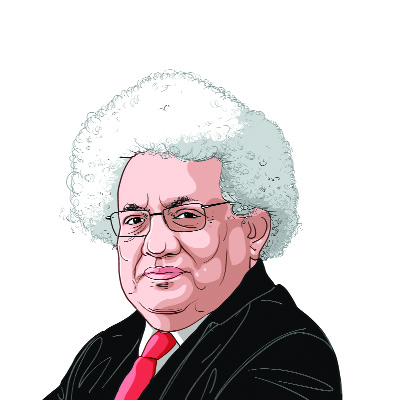Opinion Indias Other
When CRPF personnel die in Gondwana,there is an outcry,but the resolve is that the Army will not be deployed....
When CRPF personnel die in Gondwana,there is an outcry,but the resolve is that the Army will not be deployed. Even the Army top brass say that it would not be right for the Army to be deployed in firing upon citizens no matter how rebellious they are. A Naxal leader diesfor instance Azad in Andhra Pradesand there are demands for an inquiry into a fake police encounter and his funeral is held publicly with honour. And why not? There are supporters of the Naxalites who think they are just warriors for the poor and the downtrodden.
The CRPF kill some demonstrators in Kashmir and there is a riot. There are demands that the Chief Minister should resign. The Cabinet in Delhi decides to move in the Army. Is there a mismatch here? Are Kashmirs citizens not full citizens? Are the tribals of Gondwana more Indian than Kashmiris?
Indians assert that Kashmir is an integral part of India,and indeed,Kashmiris have no choice but to be so. They are the living proof of Indias secularism and never should they forget it. Kashmir is thus Indias prized possession. It arouses special emotions and strong reactions. A demonstration by the secessionists in Kashmir is taken as much more subversive than an attack by Maoists on Indian police stations. Why?
It has been sixty years and more and the Kashmir problem has not gone away. The Prime Minister of Azad Kashmir Raja Farooq Haider has been reported as saying Pakistan should stop its obsession with settling the Kashmir dispute,maintain the status quo and solve other issues before taking up Kashmir. He is obviously not a loyal Pakistani. I expect he will be arrested and put in prison without trial for saying such subversive things.
That is after all what Jawaharlal Nehru did to Sheikh Abdullah in 1953. The Sheikh,who had been lionised by the Congress for his democratic leadership and his secularism,merely reminded Nehru that when Kashmirs accession took place there was a promise that one day the merger with Pakistan occupied Kashmir would be taken up. The special status for J&K in the Constitution of India was a part of the transitory arrangements. He wanted the autonomy to be made permanent. That was when he was arrested and kept in jail without trial for a long time. A pliable leadership was found to assert that Kashmir was an integral part of India.
This is why it has never become so. Kashmir has had a rough ride within the Indian Constitution and Indian polity ever since. The refusal to consider the rights of Kashmiris as full citizens of India,including a right to agitate,has now become routine.
In the past,elections were held and manipulated. Sheikh Abdullah was restored as arbitrarily as he was jailed. There was mayhem in 1989 when Delhi interfered even more than usual and Islamist terrorists,recently retired from fighting the Soviets in Afghanistan,turned towards Kashmir. To Pakistans official enmity which led to wars in 1965,1971 and 1998 was added the constant threat of terrorism. The Kashmir problem became even more insoluble.
Indeed,now the Kashmir problem ranks along with the Palestine-Israel dispute as the longest unsolved problem in international politics. India,of course,denies that it is an international dispute except for Pakistans infiltration and incursions. It warns other countries to keep away from meddling in it. But then there is not just the international problem. India has an internal problem in Kashmir. Despite sixty years of Indias possession of Kashmir and its intermittent free elections,India is not at ease in Kashmir. Hence the Army and hence the Armed Forces Special Powers Act.
It is a tragedy. Atal Bihari Vajpayee thought he could solve the issue. Manmohan Singh has been engaged in it ever since he became Prime Minister in 2004. Thus between the two we have had twelve years of Prime Ministerial attention to the problem. There has been relaxation of restrictions on the Hurriyat and dissidents have been given a voice. And yet arbitrary shootings happen; police atrocities are not uncommon.
Kashmir remains Indias other,its signal failure. How long can this go on?





